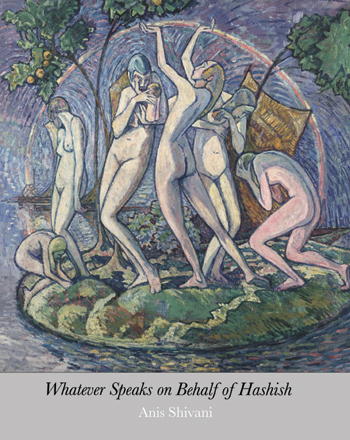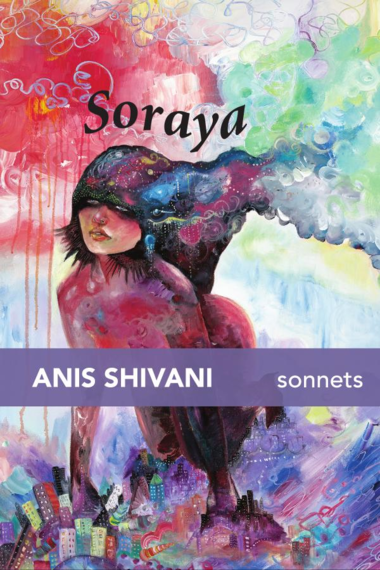For Fu
Anis Shivani is the author of several books of fiction, poetry, and criticism, including Anatolia and Other Stories (2009), Against the Workshop: Provocations, Polemics, Controversies (2011), The Fifth Lash and Other Stories (2012), My Tranquil War and Other Poems (2012), and Karachi Raj: A Novel (2015). Forthcoming books include Soraya: Sonnets and Literature in an Age of Globalization. Books in progress or recently finished include Death is a Festival: Poems, Plastic Realism: Neoliberalism in Recent American Fiction, and the novels A History of the Cat in Nine Chapters or Less, Abruzzi, 1936, and An Idiot's Guide to America. He's the winner of a 2012 Pushcart Prize. Anis lives in Houston, Texas.
Loren Kleinman (LK) Can you talk about the importance of conversation in poetry? Which poem is your favorite conversation with a poet?
Anis Shivani (AS): I'm someone leery of viewing my own emotional experience as unique and unidentifiable. It's all been said before already, and all we can do is repeat--one hopes in signature new style, but still it's repetition. The ancient bards already said it better than we can replicate. So I want to believe that conversation lets me tap into the terrifying original fount of poetry: it's the same eternal source where it all comes from, and it's a way of shunning narcissism. I'm very afraid of narcissism!
I like the poem "the death of frank o'hara" as a way of dipping into a little of O'Hara's manic wit, his speed of processing ideas and images, his helter-skelter generation of new perceptual entitlements on the go: and I set the poem in the hours of his death, because to die like O'Hara, caught unawares, celebrated and mourned by friends at the peak of one's powers, should be the wish of every poet.
LK: My favorite poem in Whatever Speaks on Behalf of Hashish is "confessions." The poem feels like a ghazal and a narrative. Can you talk about the line: "i was an ardent Frenchman and thus avid for the news I had left"? What's the conversation?
AS: Persecution, or the sense of it, real or imagined, is an essential foundation of modernism. Rousseau was terribly influential on me in college. Inhabiting a persecuted mode is a completely valid approach to being a writer (there are other more interesting mindsets than the bourgeois one, you know!), viz. Philip K. Dick, perhaps the most indispensable post-war writer.
Rousseau ran from place to place, exaggerating the designs of his enemies, and thriving on it, making it the motive for his art and ideas. It's all the more interesting when imagination collides with reality and persecution becomes real (and this is bound to happen if the artist puts his money where his mouth is): then you can really create art.
In the line you quoted, I'm conveying Rousseau's constant yearning to be where he is not: by the way, this is an entirely found poem from the root text, his Confessions, and it's interesting that you noticed it's almost a perfect ghazal, I hadn't seen that at all! Ghazals can be pretty self-centered, so it makes sense. Can confession not be self-centered? Why are we so invested as liberals in sordid disclosure? Is the age of Rousseau never going to be over?
LK: In "E.M. Forster in Alexandria" you talk with Forster, about what you could leave behind, about what you could preserve. Is conversation the truest form of preservation?
AS: Throughout this book E.M. Forster and Alexandria are constant presences, in the background or foreground, as are Durrell, Cavafy, Paul Bowles, the Maghreb, artists and writers who lived in or imagined north Africa or the Levant. Forster as a modern-day Rousseau, complete with his persecution complex (very real too), self-imposed exile(s), abrupt endings, and a visionary view of his own "perverse" eroticism, or perverse as defined by bourgeois culture: the whimpering end of bourgeois sophistication, it seems to me, with Rimbaud, Baudelaire, Apollinaire, Gauguin, all fitting the same mold along the way.
For this complex poem, made up of thirty-four brief sections, I'll advance these tentative propositions: 1. Orientalism, as the perception of the other, is how one gets started with the destructive argument that leads to art, because one finds the identity of the other mixed up with the self: one always starts with hatred and ends with love. 2. Why does so-called perversion always seem to accompany radical invention? It is because the mind is hardwired to avoid the plenitude of normality and is always leaking into the abyss, but only the artist gives it the chance to find the darkness where all is light. 3. It is helpful to root around in the dirt and muck for the beautiful, it is the only place one finds it, just as preservation only occurs in the midst of decomposition. 4. The repulsive needs to be rethought, the desperation to flee it in search of beauty is how the artist inscribes a false layer of innocence upon his necessary perversity. 5. I too aspire to belong to the hidden tribe of Forster, because while conversation may appear to be the safest mode of preservation it is actually domineering silence (Forster in Alexandria) that leads to any sense of dialectical progress, actual breakthroughs.
LK: What's next for Anis Shivani? Which conversation will you have next and with whom?
AS: I concluded a conversation with Soraya, my muse, in atonal surreal language; you will see the results in bound form next month. I finished a conversation this summer with death, Death is a Festival, and delicate hearts seem scared of reading the book, so I guess I succeeded in my aims. Over Thanksgiving I finished a book-length conversation (one of many, I hope) with my late beloved cat Fu, called The Art of Love (a misnomer for the Art of Grief), and it is the saddest thing I ever wrote. I like to talk to people dead or alive, conversation fools you into thinking you're getting somewhere.



